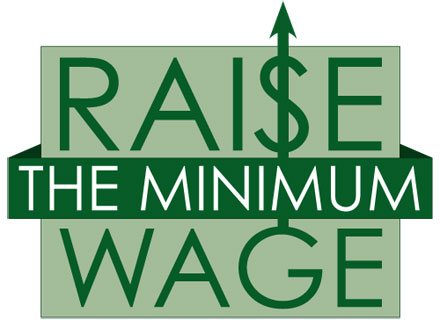One. Seven Nobel Laureates in Economics Endorse the higher minimum wage to $10.10 by 2016, saying it does not lead to lower fewer jobs.
Two. Job losses from raising the minimum wage are negligible. Minimum wage has already been raised 23 times. Every time it was raised it was opposed by some few who said “it is going to lose jobs and wreck the economy” which is factually untrue as study after study has proven.
Three. It is a myth that small business owners can’t afford to pay their workers more, and therefore don’t support an increase in the minimum wage. In fact, a June 2014 survey found that more than 3 out of 5 small business owners support increasing the minimum wage to $10.10.
Four. The value of the minimum wage has fallen dramatically. Since the minimum wage was last raised in 2009, the price of apples went up 16%, bacon 67%, cheddar cheese 21%, coffee 27%, ground beef 39%, and milk 21%. The minimum wage went up 0%. Plus, in the 1960s the minimum wage was essentially half the average wage. If that was still the case it would be $12.50 an hour.
Five. Saying we have a “free market” that will take care of workers is a myth. No corporations rely on the mythical “free market,” why should workers? Corporations lobby like crazy all the time in Washington DC and before every state and local government for direct and indirect public assistance. All levels of government provide widespread corporate welfare so why not provide some help to low wage workers? The Wall Street bailout cost over $200 billion. Fifty billionaires received taxpayer funded farm subsidies in past 2 decades. Corporate jet subsidy is $3 billion a year. Special tax breaks for hedge fund managers allow them to pay only 15% tax rate, while the people they invest for pay twice that much and their secretaries pay a higher percentage. The home mortgage deduction is $70 billion a year, with 77% going to people with incomes of over $100,000 per year. Giving workers more money is small potatoes compared with what corporations and the rich are receiving all the time.

